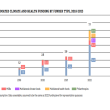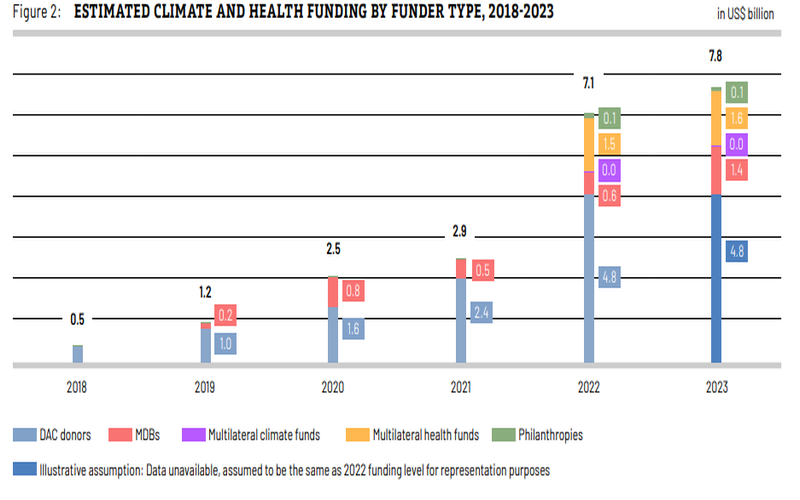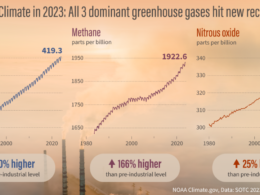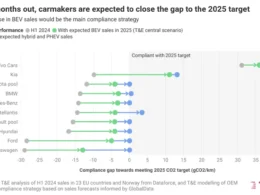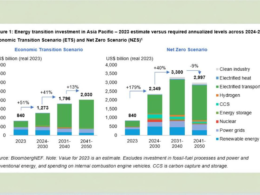A new report has revealed significant shortfalls in climate and health financing, despite a rise in global commitments. The white paper, Resourcing Climate and Health Priorities: A Mapping of International Finance Flows from 2018-2022, was unveiled at the 55th Annual Meeting of the World Economic Forum by Foundation S, Reaching the Last Mile, and The Rockefeller Foundation.
According to the analysis, global funding for the climate-health nexus increased to $7.1 billion in 2022, up from less than $1 billion in 2018. However, less than 35% of bilateral donor funding reached countries most affected by climate change, and under half of the total funding was allocated to low-income nations. The findings highlight the urgent need for more accessible and targeted financing to build climate-resilient health systems in vulnerable regions.
“While the rise in financing is encouraging, the total remains far below what is needed to address the devastating health impacts of climate change,” said Dr. Naveen Rao, Senior Vice President for Health at The Rockefeller Foundation. “Public, private, and philanthropic sectors must expand their commitments and ensure funding reaches those who need it most.”
The analysis, conducted by SEEK Development in collaboration with adelphi consult and AfriCatalyst, defined climate-health finance as concessional funding for initiatives addressing health impacts of climate change, adapting health systems, and creating health co-benefits through climate action.
In 2022, a total of $7.1 billion was allocated to projects addressing the intersection of climate and health. A significant portion of this funding came from bilateral donors, who contributed $4.8 billion. Health-focused multilateral funds added $1.5 billion, while multilateral development banks accounted for $600 million. Philanthropic organisations contributed $130 million, with an additional $23 million sourced from climate multilateral funds.
Bilateral donors have increasingly prioritised health in their climate financing. The share of climate finance directed specifically toward health-related projects rose from just 1% in 2018 to 9% in 2022. This indicates growing recognition of the critical role that climate-resilient health systems play in addressing the challenges posed by climate change.
However, a significant concern arises from the nature of this funding. Nearly 24% of the total financing in 2022 was provided as loans rather than grants. This loan-heavy approach has raised alarm over the financial burden it places on vulnerable nations already grappling with debt crises. For instance, more than 90% of the climate and health funding provided by the Asian Development Bank and the Inter-American Development Bank was loan-based, further exacerbating challenges for low-income countries in accessing much-needed resources.
“Countries on the frontlines of climate change need swift, flexible, and accessible financing to protect lives and livelihoods,” said Vanina Laurent-Ledru, Director General of Foundation S. “Collaborations between public, private, and philanthropic sectors are essential to fast-track investments that prioritise local communities.”
The report sheds light on several systemic challenges that hinder the effective financing of climate and health initiatives. One major obstacle is the fragmentation of funding mechanisms, which creates a complex landscape for countries to navigate when seeking financial support. Additionally, the absence of standardised definitions and a lack of transparency in data on financial flows make it difficult to assess the true extent of resources available or needed. These challenges are compounded by labour-intensive and bureaucratic processes, which delay the timely disbursement of funds, leaving vulnerable communities without critical support during emergencies.
To overcome these barriers, the report urges global stakeholders to take coordinated action. First, it emphasises the need to increase financing for climate-health initiatives by scaling up investments through fiscal policy reforms and improvements in global financial architecture. The report also highlights the importance of aligning priorities by developing evidence-based frameworks to guide investments.
Another recommendation is to streamline access to funding by simplifying and accelerating application processes. In addition, the report calls for a stronger focus on grant-based financing, which avoids exacerbating debt crises in low-income nations.
Finally, the report stresses the need to improve transparency by standardising reporting and methodologies. Clear and consistent data would enhance accountability and provide a clearer understanding of where resources are going, helping to close critical funding gaps and ensure that investments reach those who need them most.
Despite growing political support through platforms such as the Group of 20, COP meetings, and the World Health Assembly, evidence suggests that bilateral donor funding may stagnate or decline in the near future. However, multilateral development banks and health-focused organisations are increasingly integrating climate and health strategies, offering a potential avenue for transformative investment.
“Well-financed climate action presents an opportunity to protect vulnerable communities and achieve global health and wellbeing,” said Nassar Al Mubarak, CEO of Reaching the Last Mile. “This report underscores the urgency for ambitious and coordinated funding efforts.”














